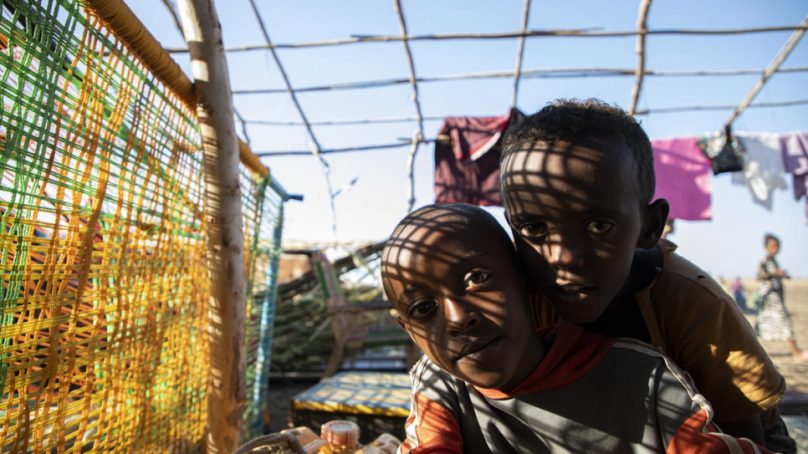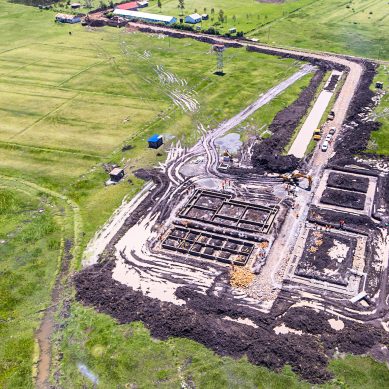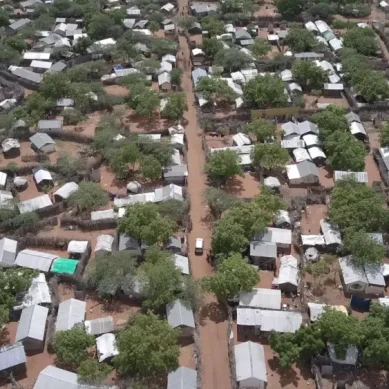
A series of donor letters that question how international support in conflict-weary Tigray, Ethiopia, is managed lay the blame more squarely on UN High Commission for Refugees (UNHCR), which they accuse of having failed to ensure the presence of experienced, senior staff members in the camps and transit sites.
The staffing problems have led to delays in camp construction and in the implementation of basic services, according to the second unnamed aid official. They said senior UNHCR staff should be on site to make management decisions and ensure contractors deliver projects on time.
Inadequate conditions have caused some camp residents to return to Tigray, the letter states, while others have headed north to Libya, where migrants often suffer serious abuses en route to Europe.
Though UNHCR has protection teams on the ground, the first unnamed aid official who spoke with said those teams have focused their efforts on identifying vulnerable groups who need special services, while overlooking broader security issues like human smuggling.
On more than one occasion, the official said, lorries have turned up in the middle of the day to take people away from the camps towards what is presumed to be Libya. Despite the official raising the alarm there was “no response in terms of reducing these risks and threats,” they said.
Nasrullah said information campaigns to highlight the risks of human smuggling and trafficking are ongoing in the camps and in other parts of eastern Sudan, though he could not confirm if any refugees had attempted the journey to Europe via Libya.
The spokesperson said the agency had also set up different mechanisms to provide refugees with information on legal issues and other rights and obligations. Information and outreach campaigns have also been launched to prevent gender-based violence.
Still, the third aid official who spoke with The New Humanitarian about their experience working on the response described efforts to protect refugees as “really, really, really dire”. Faced with homelessness after recent storms, the official said, women – especially single mothers – have resorted to sex work to obtain shelter or earn cash.
The second aid official said communication with refugees has been poor from the outset. Refugees lacked instructions from UNHCR when crossing the border in November, and were then dropped off at a camp without proper infrastructure, they said.
There are also too few helpdesks and information points in the camps and transit centres that would help refugees know what to do if they need a certain service or have a problem or complaint about the response, the official added.
“I have never seen a humanitarian response with such little human dignity,” said the official, who leads an international aid organisation working in the camps. “It is shocking to see.”
Nasrallah said UNHCR has “significantly strengthened” its outreach efforts in the camps and transit centres in recent months through information and protection desks, and awareness raising posters with messages in Tigrinya, English, and Arabic. The spokesperson said UNHCR teams were present at the onset of the response to receive new arrivals.
The humanitarian situation is worse at transit sites close to the border, according to the second aid official. They said UNHCR discouraged aid groups from providing a “comprehensive response” at the sites because it wanted to relocate refugees to camps within 72 hours of their arrival.
But the relocations did not happen as quickly as UNHCR wanted, the official said, and have stopped altogether in recent months amid concerns from local authorities about the number of refugees in camps. Few aid groups are now left to help those at the border with most based in the camps, the nearest of which is 70 kilometres away.
Assadullah Nasrullah, a spokesperson for UNHCR in Sudan, said the agency was “providing critical services” in the transit sites alongside its partners, and would continue to advocate for refugees to be relocated to camps away from the border.
Donor officials sent an earlier letter to UNHCR on January 30 that called for more experienced staff on the ground, improved services and the need for flood mitigation planning in the camps.
UNHCR responded in a March 22 letter, detailing its efforts to ramp up water, sanitation and hygiene services, launch flood preparedness plans, and mobilise protection experts from its regional office and headquarters.
But according to the June letter, the donors’ earlier suggestions “were not followed up.” It states that if problems are due to the Sudanese government, the embassies haven’t been told what advocacy messages would be useful to convey through their channels.
The June letter appeared to have “put rocket fuel into some of the agencies’ engines,” according to the third aid official who spoke about their experience in the camps. They described Tunaydbah camp as looking like a construction site, as work on roads and shelters picks up pace. “It’s a shame that hasn’t been the operational tempo up to now,” they said.
The second aid official said donors are “trying hard” to improve the response through letters and meetings with UNHCR, but called for more proactive mechanisms – including independent third-party monitoring – to hold the agency and others accountable.
With more rains and winds expected in the coming months, UNHCR’s Nasrullah said the agency was digging drainage systems and rehabilitating some 60 kilometres of access roads leading to the camps.
He said the agency is also exploring ways to support the building of semi-permanent shelters, though construction efforts won’t commence until after the rainy season, when mud bricks have time to properly dry.
Weather concerns are particularly acute at Tunaydbah camp, which is built on black cotton soil that doesn’t absorb water quickly. The site was opened in January after the first camp – Um Rakuba – reached capacity.
The aid officials who spoke to The New Humanitarian questioned whether donor money should be spent on expensive earthwork and construction projects to rectify unsuitable camp sites.
For now though, the officials said they were focused on addressing the threat of further storms. “If there are heavy rains and… the camps are flooded it will be a fiasco in terms of health and protection,” one said.
- The New Humanitarian report








